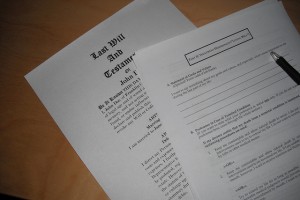Wills are necessary, but intimidating. Trying to put all your wishes into one legal document is often a daunting task, just as interpreting a will without the help of the individual who drafted it can be tricky business. That is why getting it right is essential.
Here are some common mistakes that people make when drafting a will:
- Writing the will by hand. Although you can legally draft a will by hand, you should probably not do so. While some states recognize holographic wills (North Dakota does, as long as the signature and material portions of the document are in the testator’s handwriting), you’re typically better off having a typewritten will signed by two witnesses if you want to guarantee its validity after you’re gone.
- Being unfamiliar with state law. State law regulates what constitutes a valid will, witness requirements, etc., so you should either carefully study the law governing wills made in North Dakota, or retain the services of a lawyer who is familiar with them.
- Not knowing what to include/not include in the will. While many people naturally want to list all their possessions in their will, there are things that shouldn’t be included, like funeral plans, life insurance and retirement plans, jointly held property, and even your “digital estate.” Some things to include: the name of your executor, a listing of your significant assets, the names of who will inherit what, and a guardian for minor children, if applicable.
- Leaving Out a Business. One thing that should definitely be included in your will is your business, especially if you are a sole proprietor. You should address issues like whether you plan to keep the business in the family through a trust or if you want the company sold upon your death.
- Failing to Make Revisions. Just because your will is drafted does not mean it is complete. Marriage, divorce, children, business acquisitions, and the sale of assets can all affect the terms of a will. Life circumstances change, making it necessary to revise your will accordingly.
There’s no law that says you can’t draft your own will, but understanding the laws that apply to wills may require calling in a professional. If you need help drafting a will, contact a business lawyer at O’Keeffe O’Brien Lyson Attorneys online, or call 701-235-8000 or 877-235-8002 (toll-free) today.
Photo courtesy of Flickr/Ken Mayer



